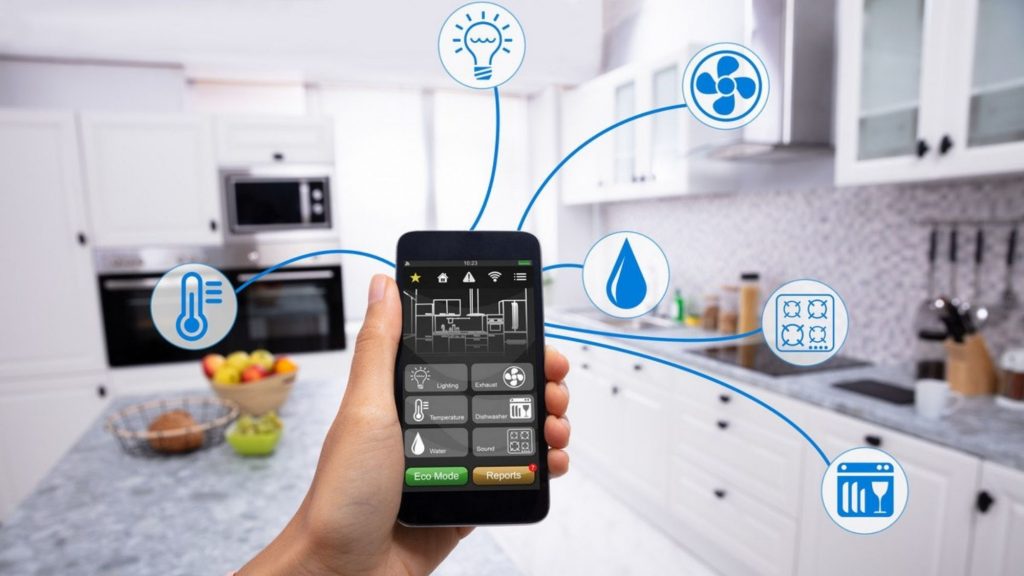We all have them. Those apps we open without thinking. Not because we need anything in particular, but because they feel… safe, in some…
[Opinion] Exactly how smart will tomorrow’s homes be?

Artificial intelligence is becoming increasingly entrenched in our daily lives and, as a result, becoming more intelligent. This dramatically accelerates the rate of smart home technology adoption, argues Dr Andrew Dickson from CBI-electric.
Smart homes are no longer a thing of the future, but a reality of the present, and soon they will be even smarter. Global spending on IoT (Internet of Things) products is forecast to reach $1.1 trillion in 2023, coming out of the pandemic unaffected with more and more people wanting connected homes.

Artificial intelligence (AI) is becoming increasingly entrenched in our daily lives and, as a result, becoming more intelligent. When it comes to our homes, AI can use information gathered from the grid, weather data, and smart meters, along with energy consumption stats, to analyse, improve and optimise our homes’ operational and energy performance.
The advancement of this technology means that not only will smart homes anticipate our needs and do so automatically, but they will also be able to detect health conditions, prepare our meals, and even exercise our pets for us. Going forward, all appliances, plugs and accessories will have an element of automation based on our needs or schedules.
Overall, though, smart homes of tomorrow will be more connected, conscious and autonomous.
Smart homes are connected
Today’s homes have been elevated by a myriad of devices ranging from those for home intelligence, and energy efficiency, to entertainment, access control and home comfort. But now, with more people working remotely, this has expanded to include devices that aid with daily tasks and connectivity. As technology advances, the more these devices will talk to each other.
In doing so, smart homes will be able to learn more about their owners or occupants and be able to anticipate their needs. This is the result of the data that these interconnected devices will be able to collect, analyse, share and execute on, helping to transform houses of the future from a number of interconnected gadgets and accessories into truly “smart” homes.
Imagine, for example, coming home to a package of medicine delivered by drone courtesy of the health sensors embedded in your bathroom which detected signs of an impending illness and automatically placed an order with your pharmacy via a health app.
Smart homes are conscious
Homes (and neighbourhoods) could be powered by smart microgrids which use renewable energy sources. This could solve the current challenge of access to electricity across Africa. Designed and maintained correctly, these systems can be sustainable far into the future.
In Alabama, a microgrid pilot project was launched to test how homes can interact and become more energy efficient. The 62 homes in the Alabama Smart Neighbourhood have been built to incorporate home automation and be connected to a microgrid. The technology used can forecast the weather, predict electricity usage in the neighbourhood, and then make decisions about whether to run the microgrid’s solar panels, battery storage or backup natural gas generator.
Different objectives can also be set such as minimising costs or reducing carbon output. Additionally, the control system communicates with devices in the homes and can adjust these remotely. However, each home within the microgrid can set parameters within which this software can make changes, such as maximum and minimum temperatures for heating and cooling.
Africa is still developing and deploying microgrid and smart city development concepts. However, to move towards sustainability, it is essential that small cell systems, that include smart buildings, become commonplace.
Smart homes are autonomous
Seventy-three percent of homeowners say they use smart devices for convenience and time saving. While today’s technology enables users to control home appliances and systems from anywhere in the world, the capabilities will be amplified for further convenience going forward.
We are already seeing the emergence of fridges that email owners recipes based on what’s inside, washing machines that send a text message once a load of laundry finishes and virtual assistants that respond to one’s mood based on tone of voice. We also have irrigation systems that only turn on when scheduled if it is not raining.
Most of these smart home devices are controlled via apps, so getting them all to be managed seamlessly via a single command centre could offer users the greatest convenience.
Smart homes will be the future. Life as we know it will be irrevocably altered for the better of consumers and the country at large. Start investing today in the smart homes of tomorrow.
- Dr Andrew Dickson is the engineering executive at CBI-electric: low voltage.
ALSO READ: As Africans push to be online, data cost stands in the way

